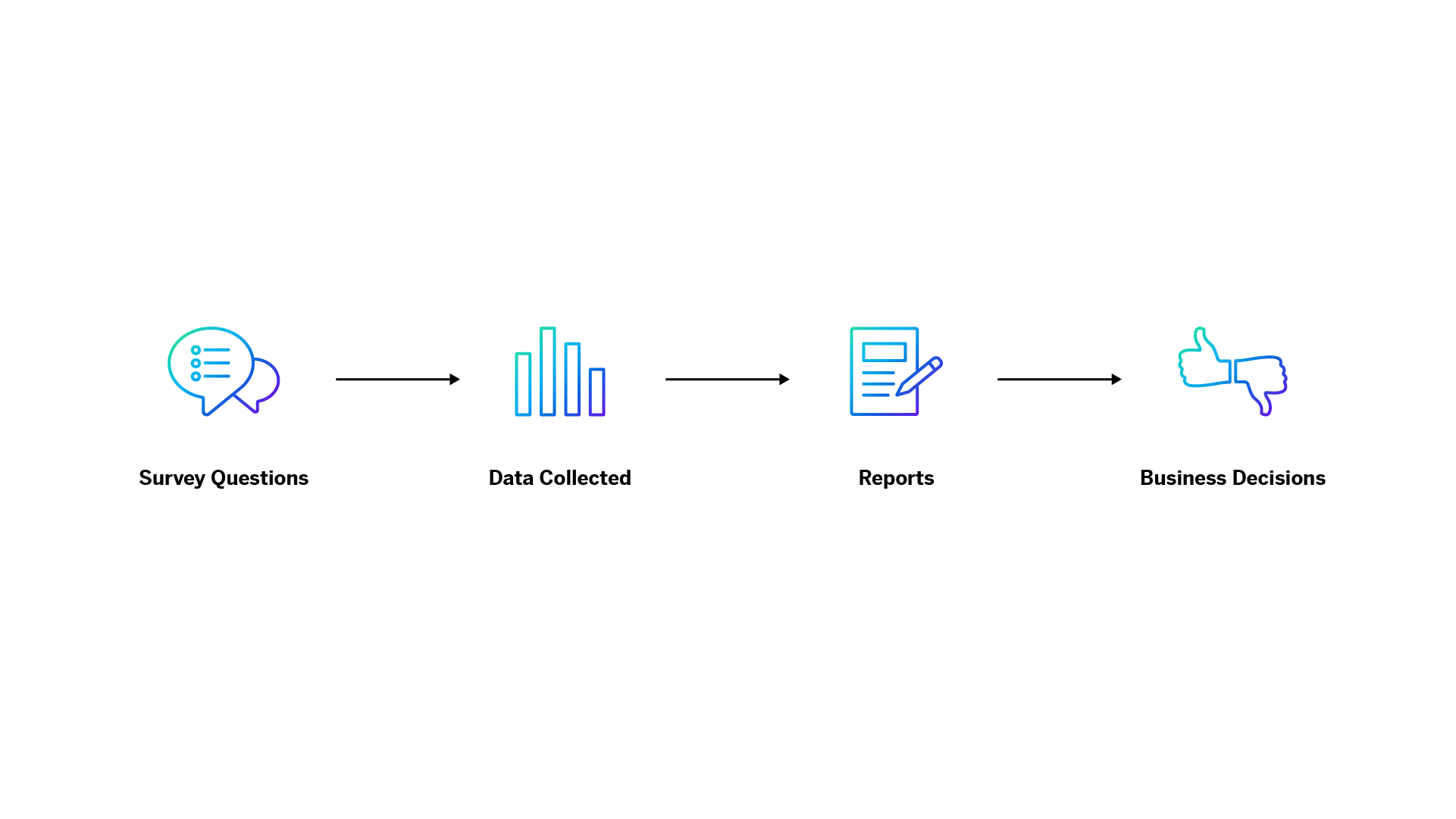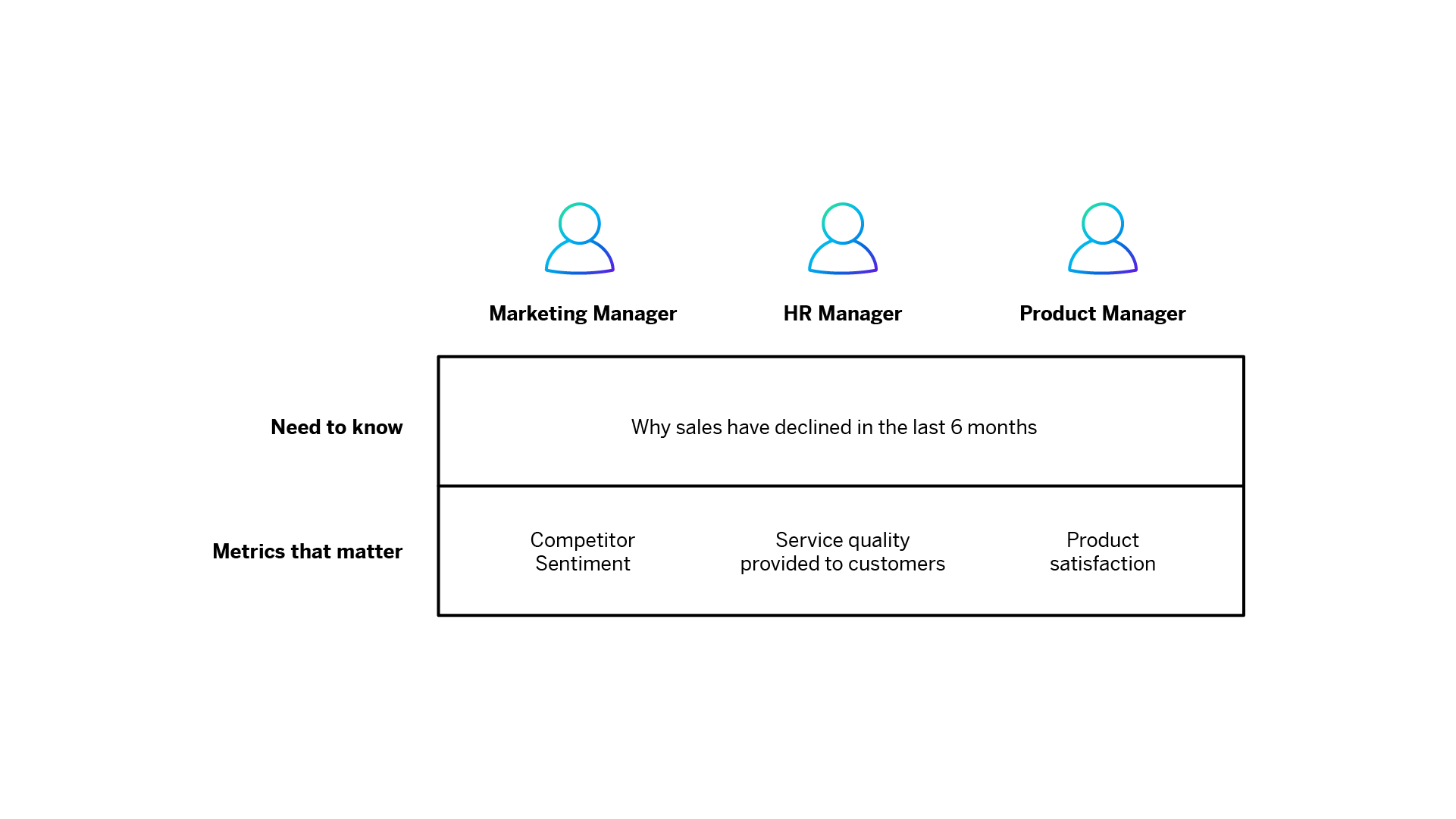The end product of a survey project is a report for decision-making to solve business problems. A survey/questionnaire is a group of questions that exist to obtain insights to answer business problems. Every question should directly contribute to answering the Project Objectives you previously created.

Often, survey designers fail to focus their questions on the project objective, resulting in irrelevant questions that aren’t useful during analysis. This negatively impacts confidence in the data from decision-makers.
To optimize the value of your survey, keep the following in mind when outlining the questions to include in the survey:
-
As part of planning your survey, identify the stakeholders who need to make decisions using the survey results. Start by asking What data do they need? What decisions do they need to make? What metrics matter most to them?. Then create your questions based on those needs. By starting with the end in mind you will elevate the value that your XM data collection projects deliver to your organization.
-
For Example:

-
Make sure each question adds value and drives responses that relate directly to your research goals.
-
For example, if it's important to know your participant’s preference in communication frequency, relationship status, education levels, or number of children, go ahead and ask these questions in the survey. If not, save yourself and your respondents some time and remove these. You will likely not analyze this data, and it will jeopardize the quality of other responses.
-
For example, if you have age, state, product ownership, tenure, segment, spend, loyalty status, etc. as Operational Data, import this data rather than asking it in the survey.
-
-
Find out what Operational Data you have available in your organization.
-
When you import Operational Data to a survey you will not need to create a question to record this information. This will reduce the survey length and burden on respondents, while still making the data available in results.
-
Operational Data will add context and breakdown opportunities in reporting that you would otherwise not have when purely collecting survey responses.
-
Consider which Operational Data points decision-makers and senior leaders use or rely on regularly. Include these in your survey to elevate the direct value it will have for these stakeholders.
-
Next, you will learn how to plan the order of your survey questions.